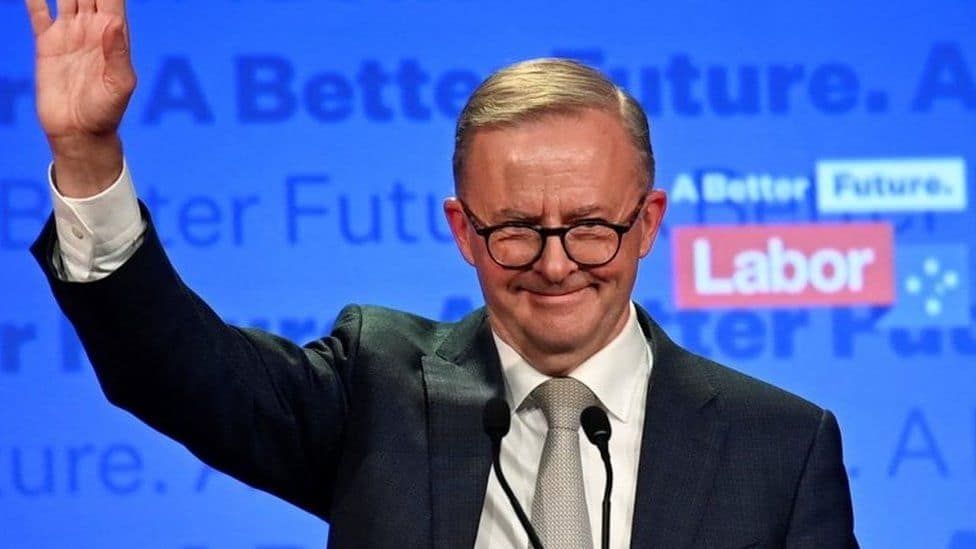Australia has submitted more ambitious climate targets to the United Nations, with the government declaring the country had turned a corner on the issue.
Prime Minister Anthony Albanese signed an updated version of the country’s nationally determined contribution to the UN’s framework convention on climate change on Thursday morning.
The signing took place in Canberra alongside Climate Change Minister Chris Bowen and industry stakeholders, including business groups, trade unions and energy advocates.
Albanese has written to the UN’s executive secretary Patricia Espinosa to convey Australia’s new stance on climate change under the Paris agreement.
The prime minister indicated the updated submission for a 43% per cent emissions reduction by 2030 would provide certainty and point the country in the right direction.
“What today demonstrated … is an opportunity that Australia has to end the climate wars, an opportunity for solutions, not arguments,” he told reporters.
“It’s all about the short-term capital investment that’s required, but then you get the long-term benefit, because the cheaper, cleaner energy flows well into the future, and that’s what sets Australia up for the future.”
The government’s emissions reduction plan of 43% by the end of the decade was higher than the 26-28% target proposed by the previous government.
Bowen said the updated submission sent a message to the world on increased action to reduce emissions.
“Today, Australia turns the climate corner. For years, the Australian government told the world that it was all too hard, told Australians it was too hard,” he said.
“We’ll provide the framework for renewable energy, for storage and transmission, creating hundreds of thousands of jobs across the country, and particularly in Australia’s regions.”
The update to the submission comes ahead of the next UN climate summit in Egypt in November.
Bowen said the emphasis on greater levels of renewable energy was even more critical in the wake of the energy crisis gripping the east of the country.
“That makes this work more important, not less, setting the framework for the future, getting the investment going that has been so lacking,” he said.
